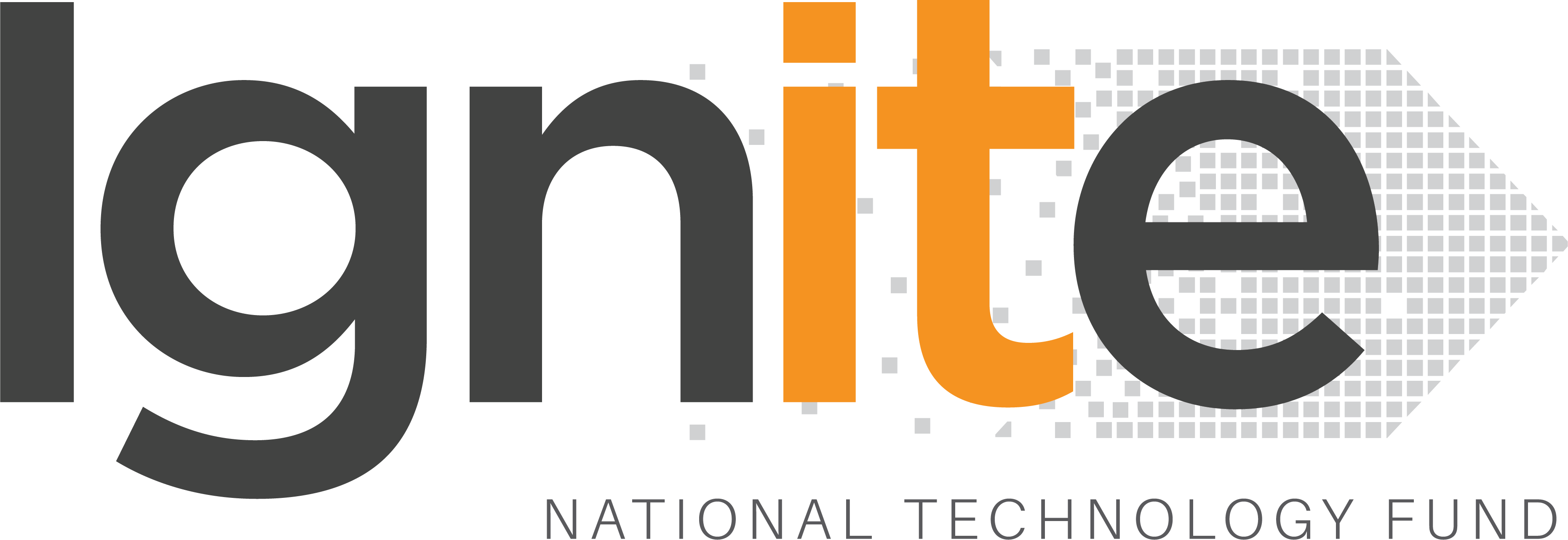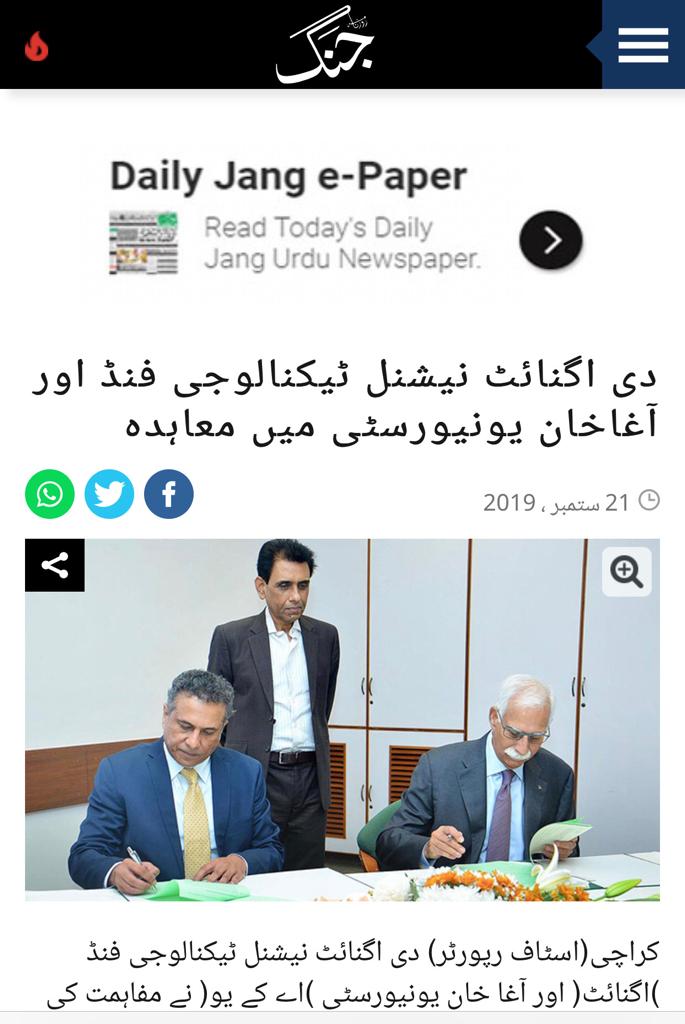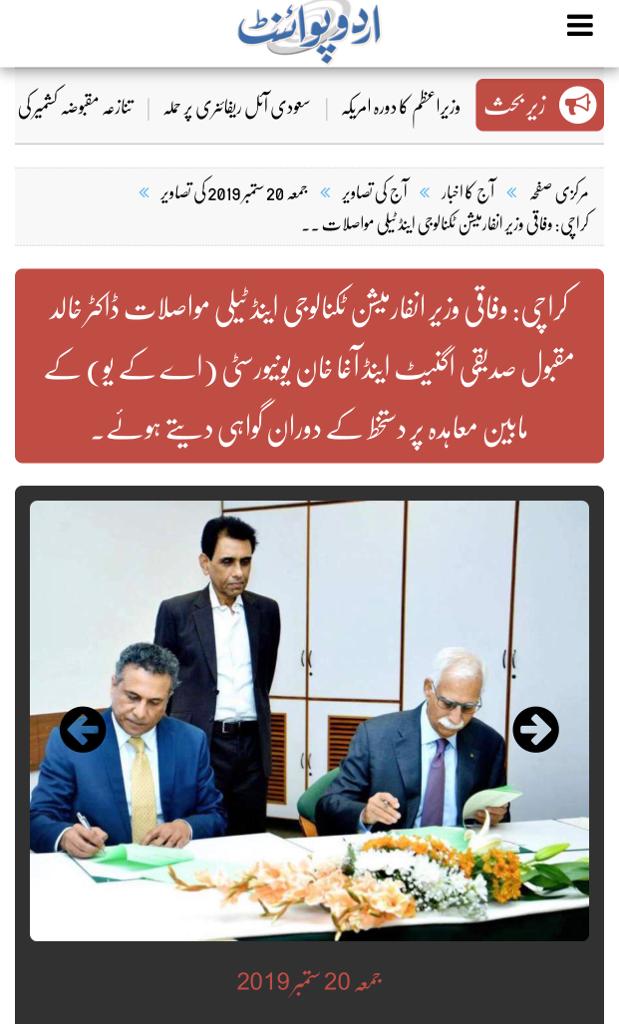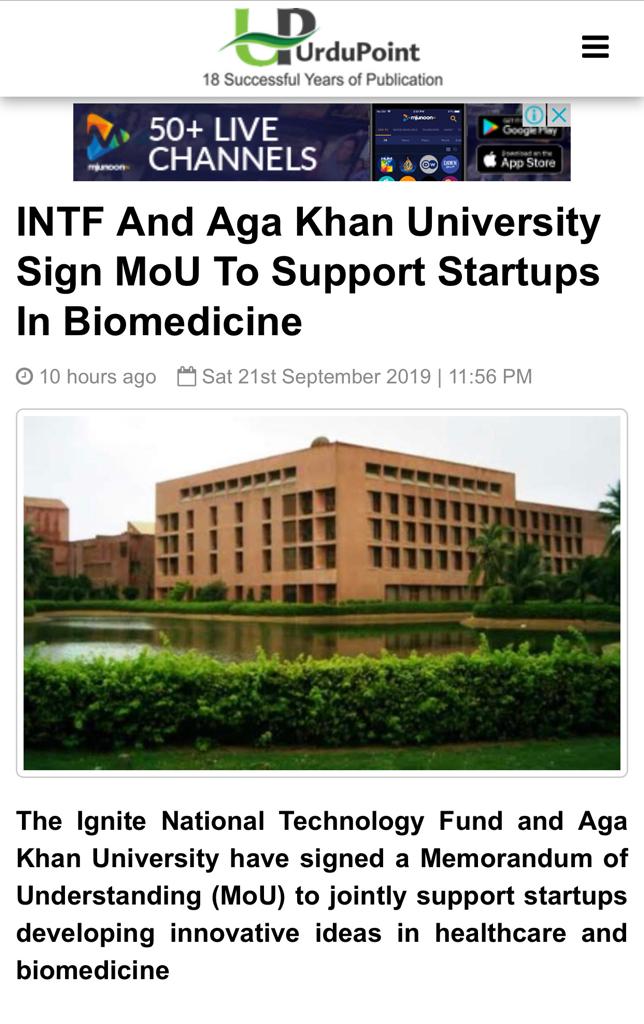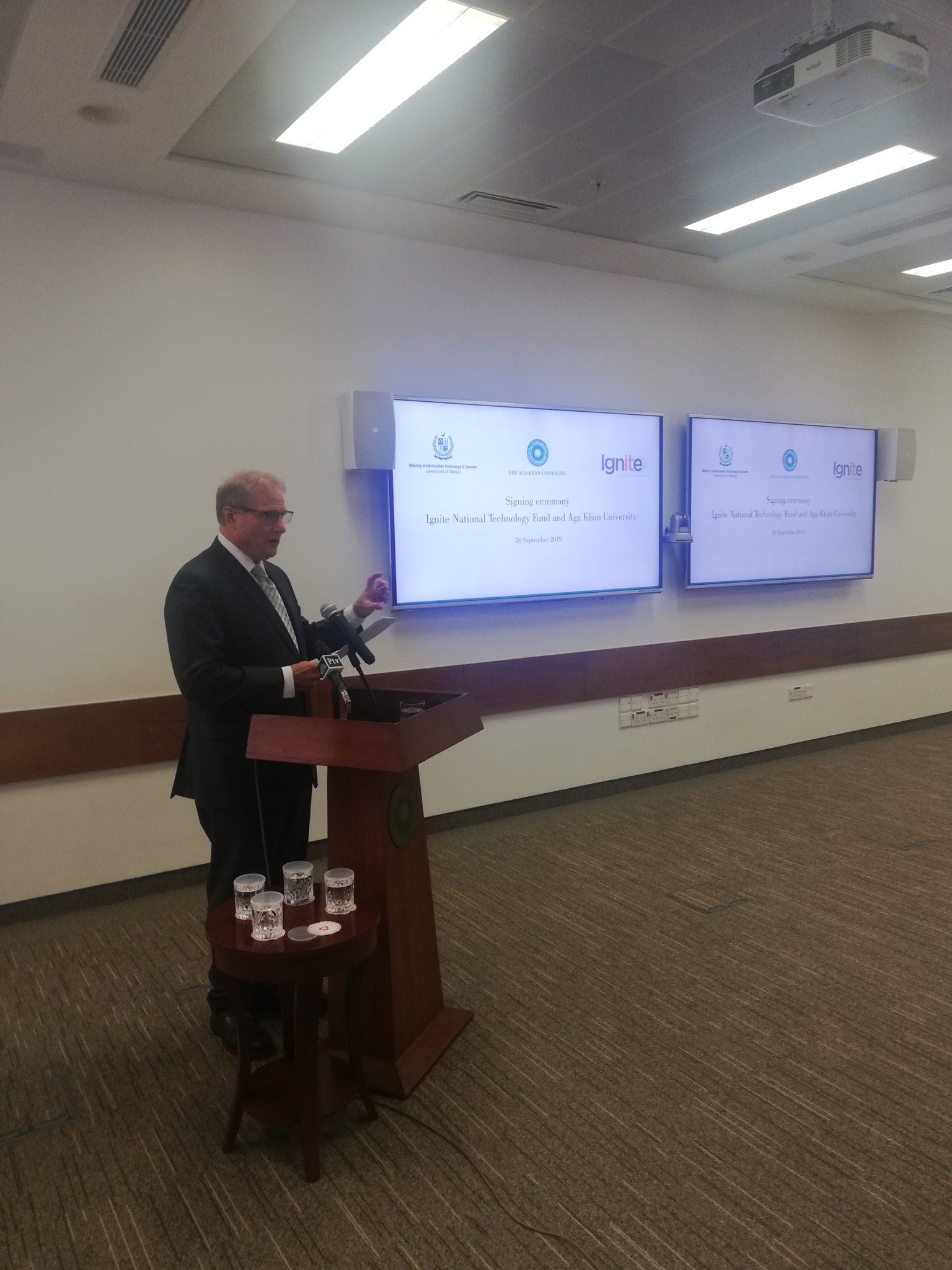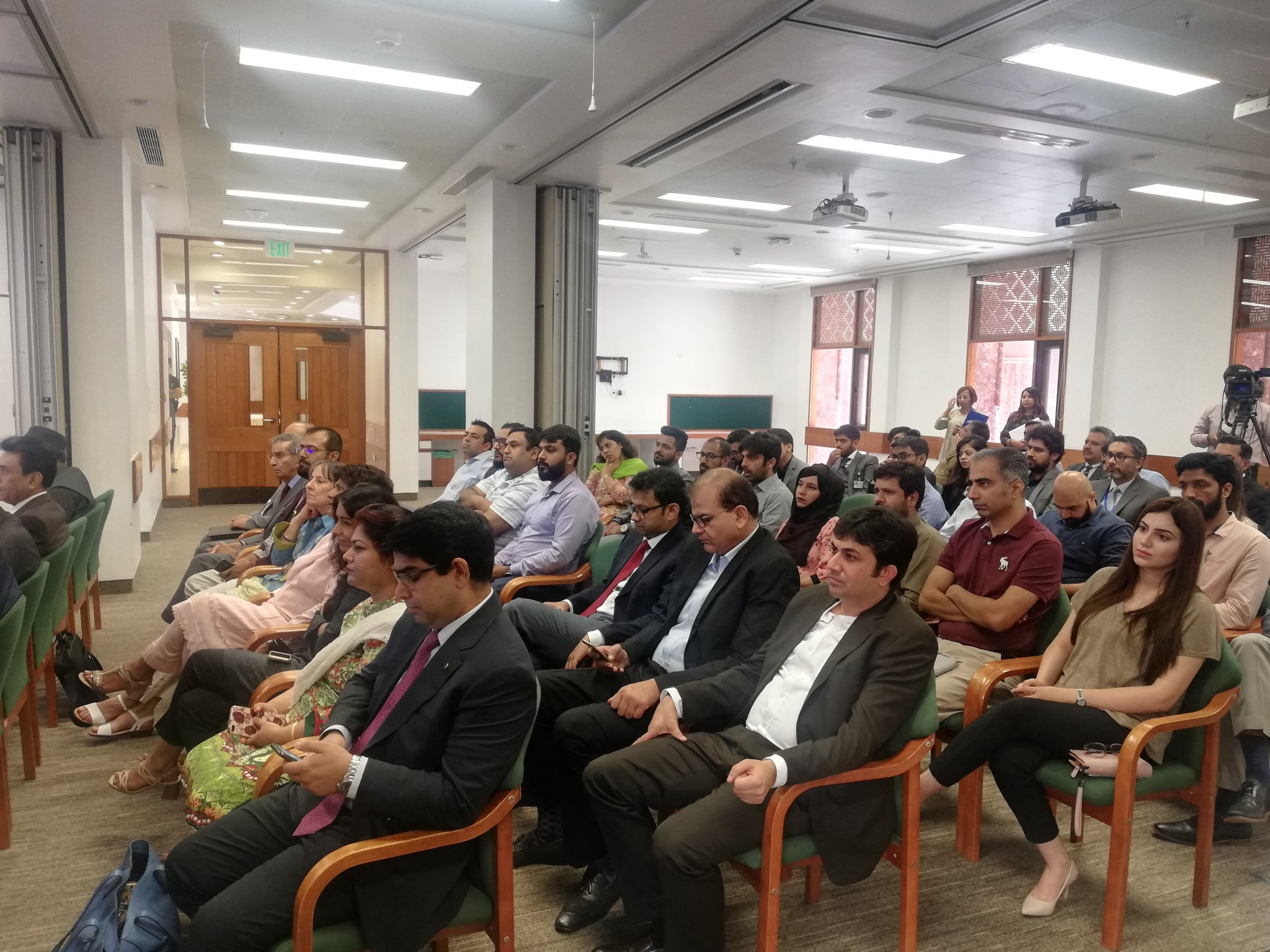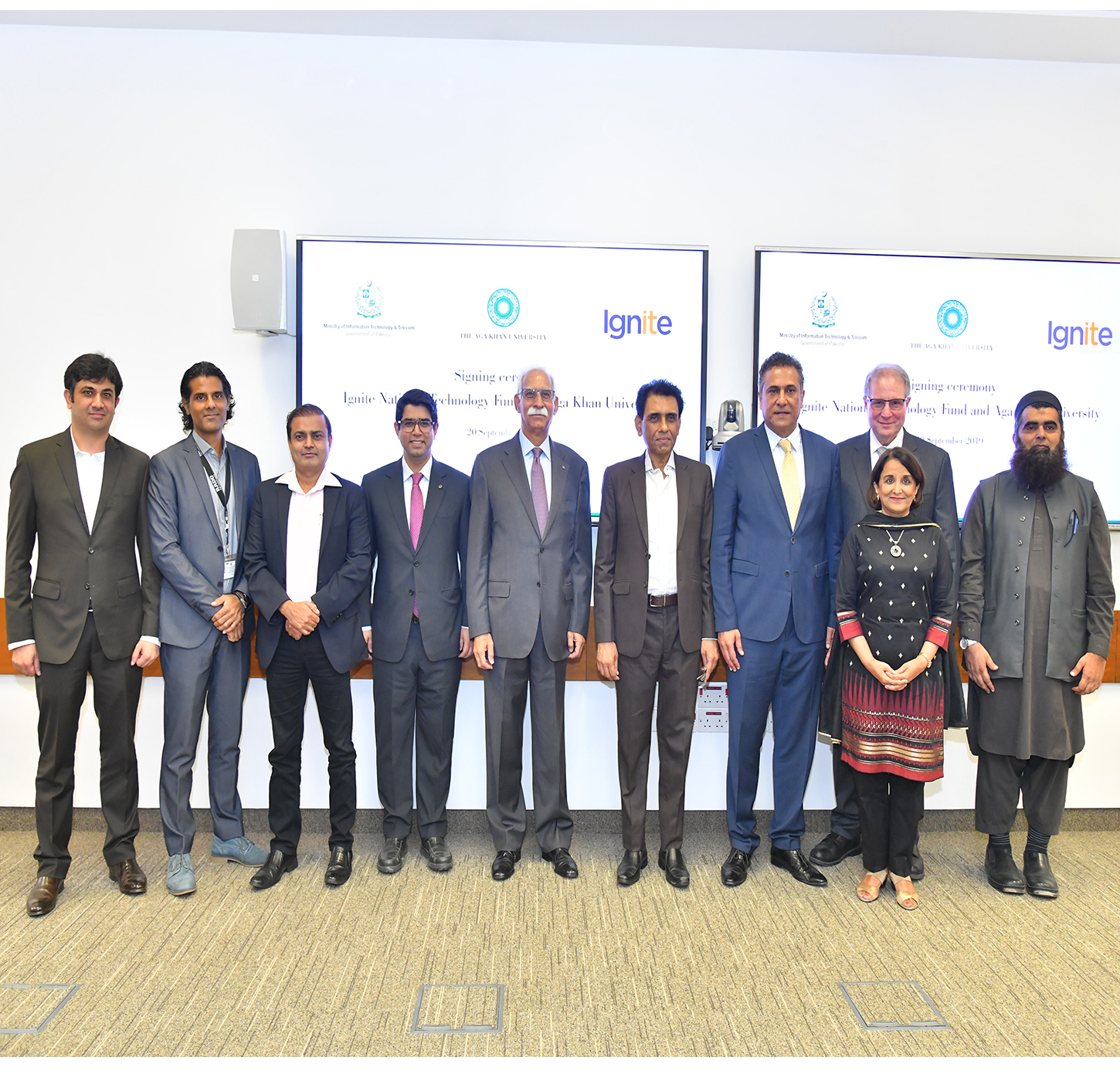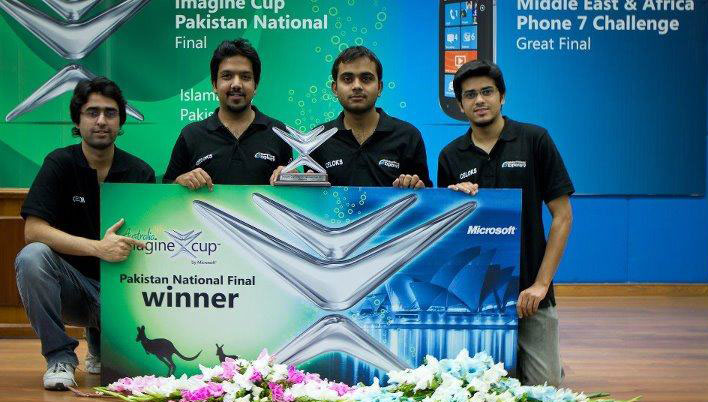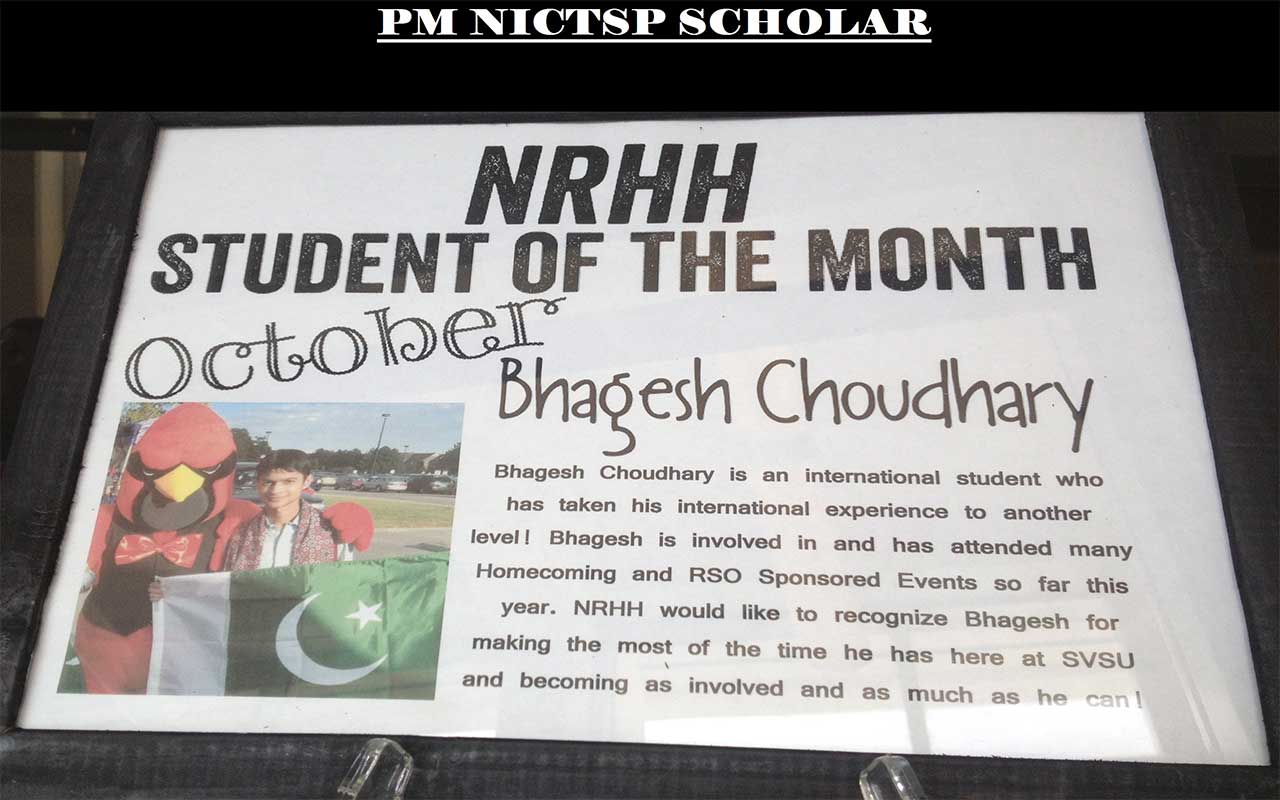Karachi, Pakistan, September 20, 2019: The Ignite National Technology Fund and Aga Khan University have signed a Memorandum of Understanding (MoU) to jointly support startups developing innovative ideas in healthcare and bio-medicine.
The MoU was signed by Ignite CEO Yusuf Hussain and AKU President Firoz Rasul at AKU Centre for Innovation in Medical Education, home to the AKU Innovation and Incubation Space, i2s. The event was attended by Federal Minister for Information and Technology Dr Khalid Siddiqui.
In his speech at the MoU signing ceremony, Dr Siddiqui spoke about the government’s role in creating an ecosystem in which innovation can flourish. “The modern knowledge economy thrives on creativity and the pooling together of expertise from different industries,” said Dr Siddiqui. “Partnerships are an essential tool that bring together the most committed people to tackle pressing problems around them and to explore global trends and opportunities.”
Ignite, with connections to Pakistan’s Ministry of Information Technology and Telecommunication, supports a national network of incubators across Pakistan that seek to solve local problems and to enable young businesses to target global opportunities in health, education, energy, agriculture, telecommunications, finance and other industries.
Ignite five incubation centres based in Islamabad, Lahore, Peshawar, Quetta and Karachi have provided over 300 startups with essential facilities and expertise alongside access to a network of mentors and investors.
The agreement will see AKU offer its facilities as well as the expertise of its faculty to Ignite existing and future startups, enabling them to develop meaningful ventures and partnerships in the healthcare sector. In turn, Ignite will support startups being matured through AKU i2s. In the long-term, AKU and Ignite will also support one another on establishing a specialised healthcare and biomedicine incubator in the country.
Commenting on the agreement, Mr Hussain said: “This partnership will allow us to address the entire value chain of deep health tech innovation including lab facilities, trials, regulation, incubation, mentorship, and funding with the objective of targeting domestic and foreign markets with world-class Artificial Intelligence, Augmented Reality, Internet of Things and other Fourth Industrial Revolution-based products.”
AKU President Rasul noted that both organisations have unique strengths that would be of great use to today’s entrepreneurs.
“We share a spirit of collaboration and an openness to new ideas which are key ingredients for innovation,” said Mr Rasul. “Universities are engines of innovation and this partnership will give ambitious innovators access to the expertise they need to develop low-cost, sustainable solutions to today’s healthcare challenges.”
Solutions to healthcare issues rarely fit within the confines of a single discipline. An example is Breath Hacks, an idea proposed at a hackathon at the University, that showcases how professionals from varied backgrounds such as engineering, IT and medicine worked together to develop a solution to a common problem in hospitals around Pakistan. Critically-ill patients require urgent access to ventilators, an expensive life-support system that is often in short supply. This means that many patients have to rely on inefficient, manual pumps known as ambu bags for breathing assistance while they wait for a ventilator to become available.
Breath Hacks has developed a prototype device, which automates the pumping system, and aims to provide efficient breathing assistance. Breath Hacks’s invention has been developed in partnership with Aga Khan Development Network’s Digital Health Resource Centre and is patent pending.
Dr Asad Mian, director of AKU’s Critical Creative Innovation Thinking Forum that oversees i2s, was excited about teaming up with Ignite. Commenting on the signing of the MoU, he mentioned that partnerships that focus on assisting startups are more likely to succeed since they channel resources to nimble entrepreneurs who are focused on addressing a specific and scalable problem.
University Provost Carl Amrhein, AKU Vice-Provost Anjum Halai and representatives from government and the University were also present at the event.
